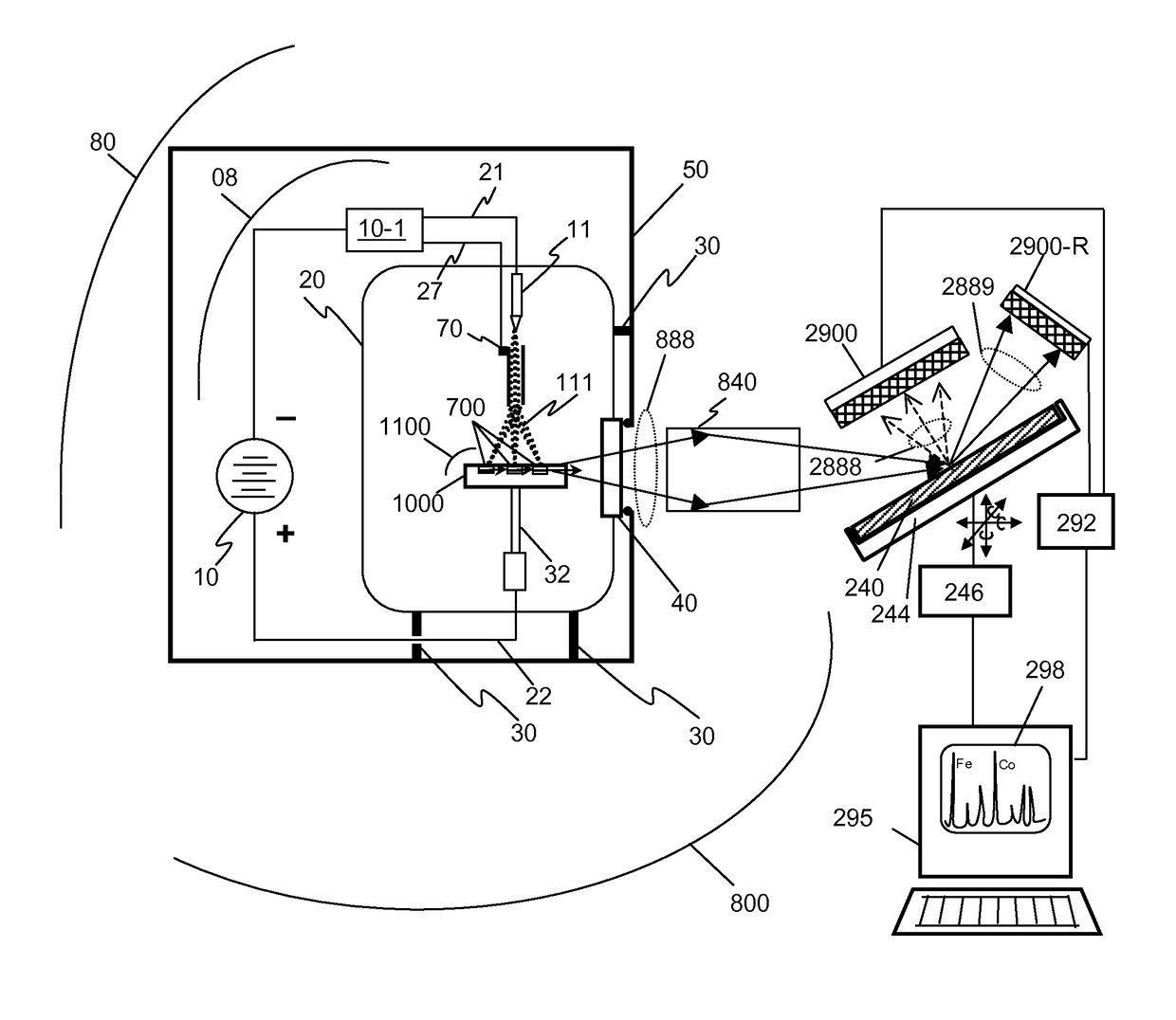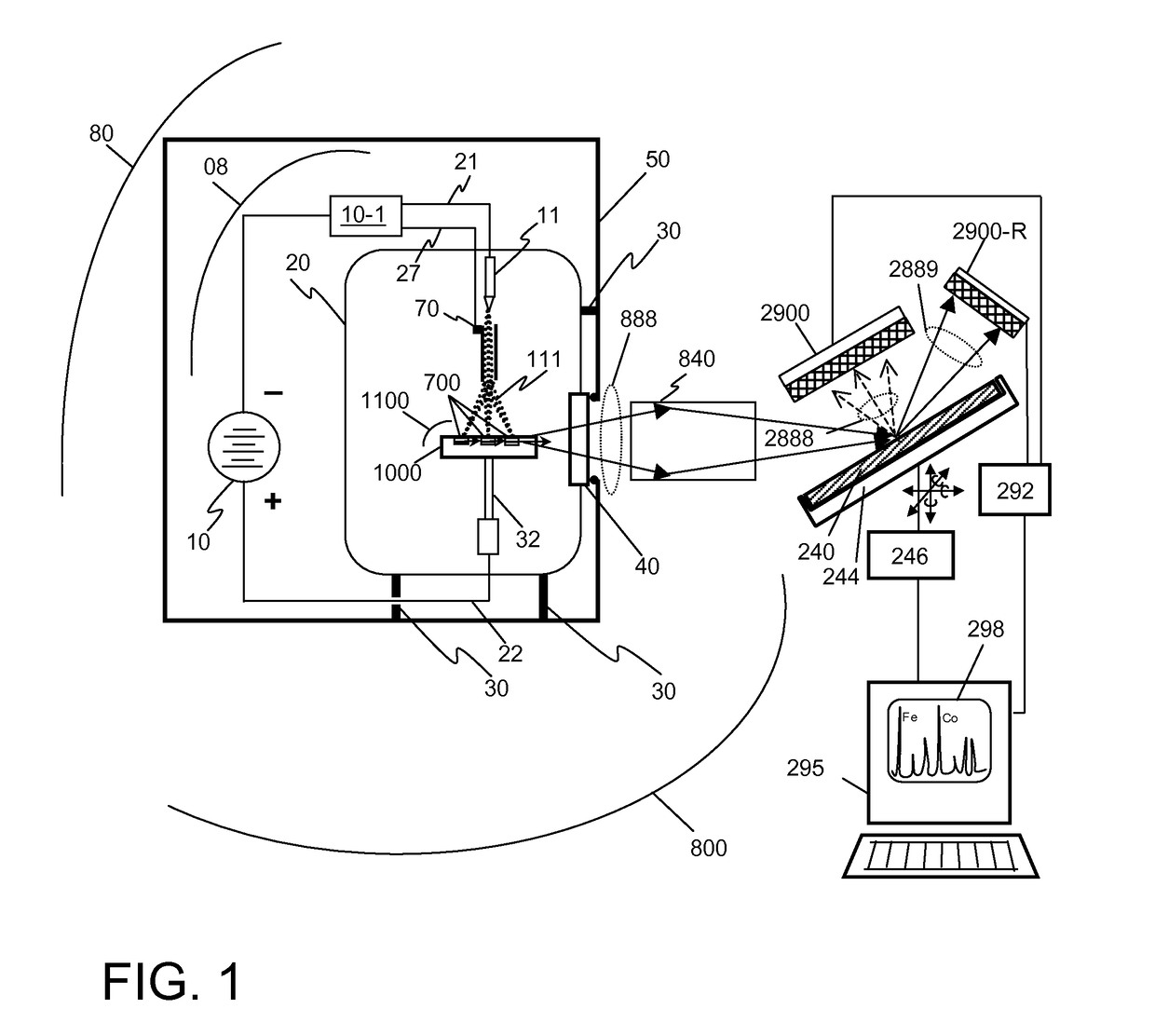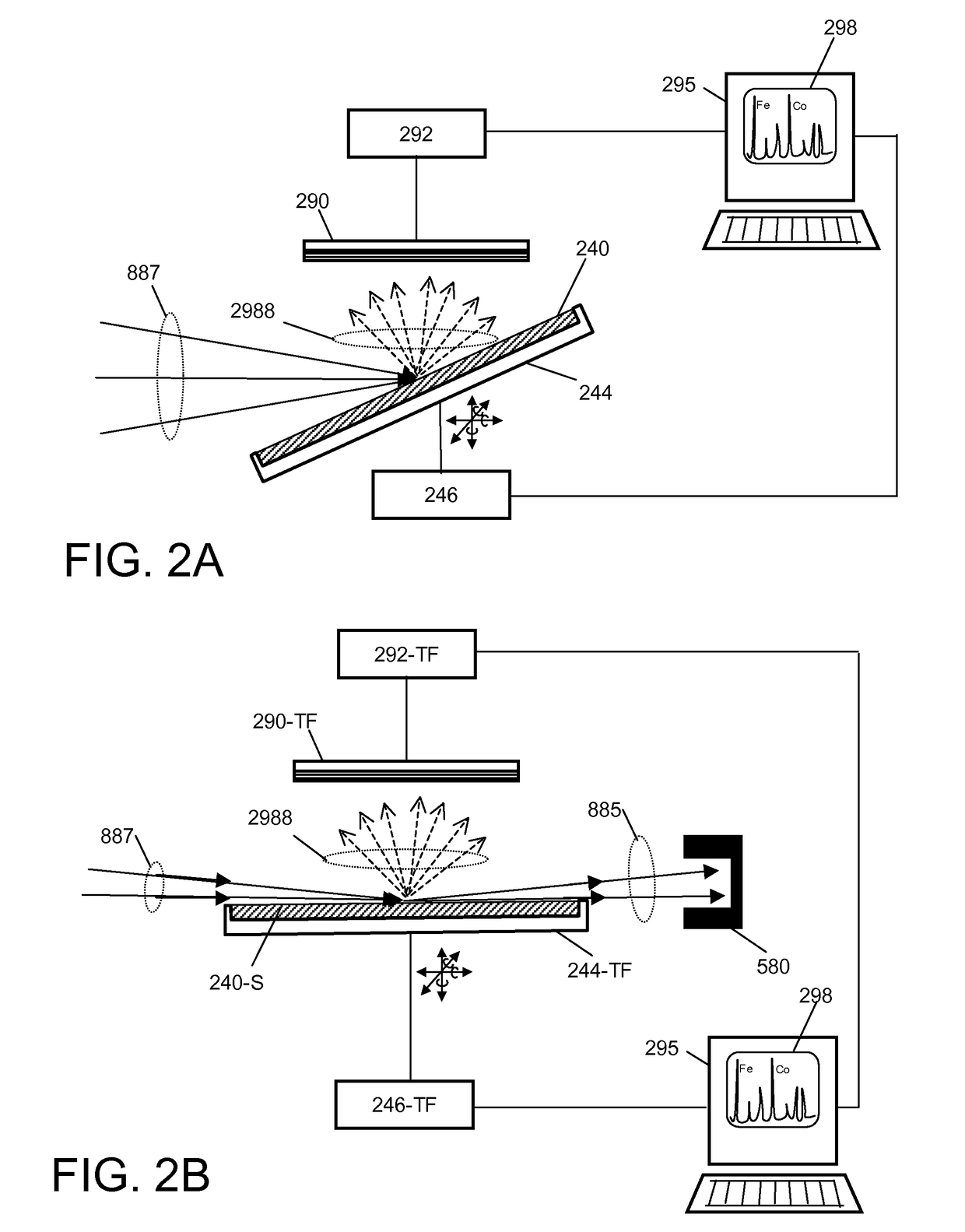X-ray surface analysis and measurement apparatus
a measurement apparatus and surface technology, applied in the direction of x-ray tube target materials, instruments, x-ray tube targets and convertors, etc., can solve the problems of inability to achieve beamtime, inability to use conventional laboratory equipment, and inability to obtain beamtime in months, so as to achieve wide choice of x-ray energy, increase brightness, and high x-ray brightness
- Summary
- Abstract
- Description
- Claims
- Application Information
AI Technical Summary
Benefits of technology
Problems solved by technology
Method used
Image
Examples
Embodiment Construction
[0041]For all of the surface x-ray techniques mentioned above, the x-ray flux F of the x-ray beam incident on the sample surface is an important parameter and is equal to the product of the x-ray beam brightness Bs at the sample (defined as number of x-rays per unit area and per unit solid angle illuminating the sample), the cross sectional area A′ of the incident beam at the sample point, and the convergence angles: Δθ in the scattering plane which contains incident and reflected x-ray beam, and ω in the out-plane which is perpendicular to the reflection plane:
F=BsA′Δθ*ω [Eqn. 1]
[0042]The x-ray beam brightness Bs at the sample is typically smaller than the x-ray source brightness (B) because the inherent low focusing efficiency and aberrations of the x-ray optical train lead to blurring and therefore an increase in the effective x-ray source size. Bs and B are approximately related by:
[0043]Bs=Bρs2s2+[Mδ / (M+1)]2[Eqn.2]
where ρ is the total focusing efficiency of the all the...
PUM
| Property | Measurement | Unit |
|---|---|---|
| thickness | aaaaa | aaaaa |
| size | aaaaa | aaaaa |
| temperatures | aaaaa | aaaaa |
Abstract
Description
Claims
Application Information
 Login to View More
Login to View More - R&D
- Intellectual Property
- Life Sciences
- Materials
- Tech Scout
- Unparalleled Data Quality
- Higher Quality Content
- 60% Fewer Hallucinations
Browse by: Latest US Patents, China's latest patents, Technical Efficacy Thesaurus, Application Domain, Technology Topic, Popular Technical Reports.
© 2025 PatSnap. All rights reserved.Legal|Privacy policy|Modern Slavery Act Transparency Statement|Sitemap|About US| Contact US: help@patsnap.com



